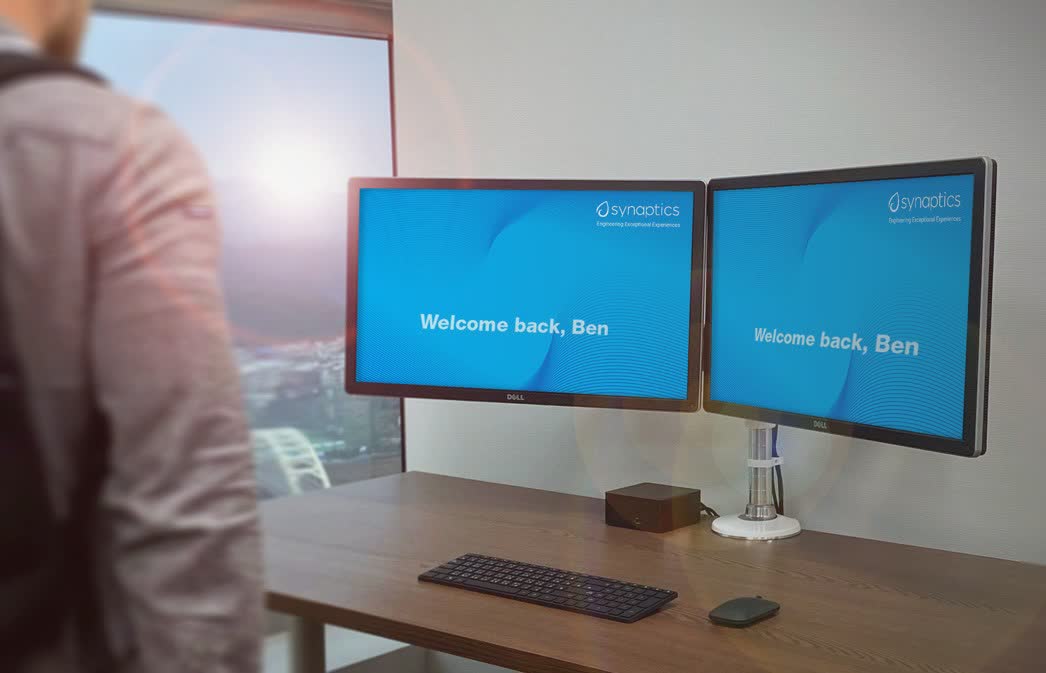In brief: Synaptics recently unveiled a new wireless docking system that uses WiFi 6E to reach higher levels of bandwidth than ever. Called Gemini, it seems to mainly target today’s emerging hybrid work environment—people who need to quickly dock a laptop to multiple external monitors in a variety of settings.

First unveiled at CES 2022, Synaptics says Gemini can wirelessly dock a device with up to two 4K 60Hz monitors with a level of latency indistinguishable from wired connections. It uses WiFi 6E combined with Bluetooth, DisplayLink, USB, and IoT technologies.
As a laptop approaches the monitors, the Gemini's Wireless Dock Connection Manager securely connects them so that it's already docked as the user sits down. When moving away after a session, the device securely disconnects the user. The Wireless Dock Connection Manager seamlessly manages the Bluetooth and WiFi, the latter of which works over a BCM43752 WiFi 6/6E radio.

Gemini can also dynamically adjust video compression based on the available bandwidth using the DL-1950 video interface IC. Synaptics’s own Media Agnostic USB (MA-USB) can also help any device connected to Gemini communicate wirelessly. A VS641 network processor SoC manages the MA-USB and the WiFi radio communications.
Something like this might be helpful for someone who has to bring the same work notebook to an office, home office, or hotel. It could also come in handy with tablets, VR headsets, and gaming.
https://www.techspot.com/news/93199-synaptics-unveils-wifi-6e-wireless-docking-system-can.html